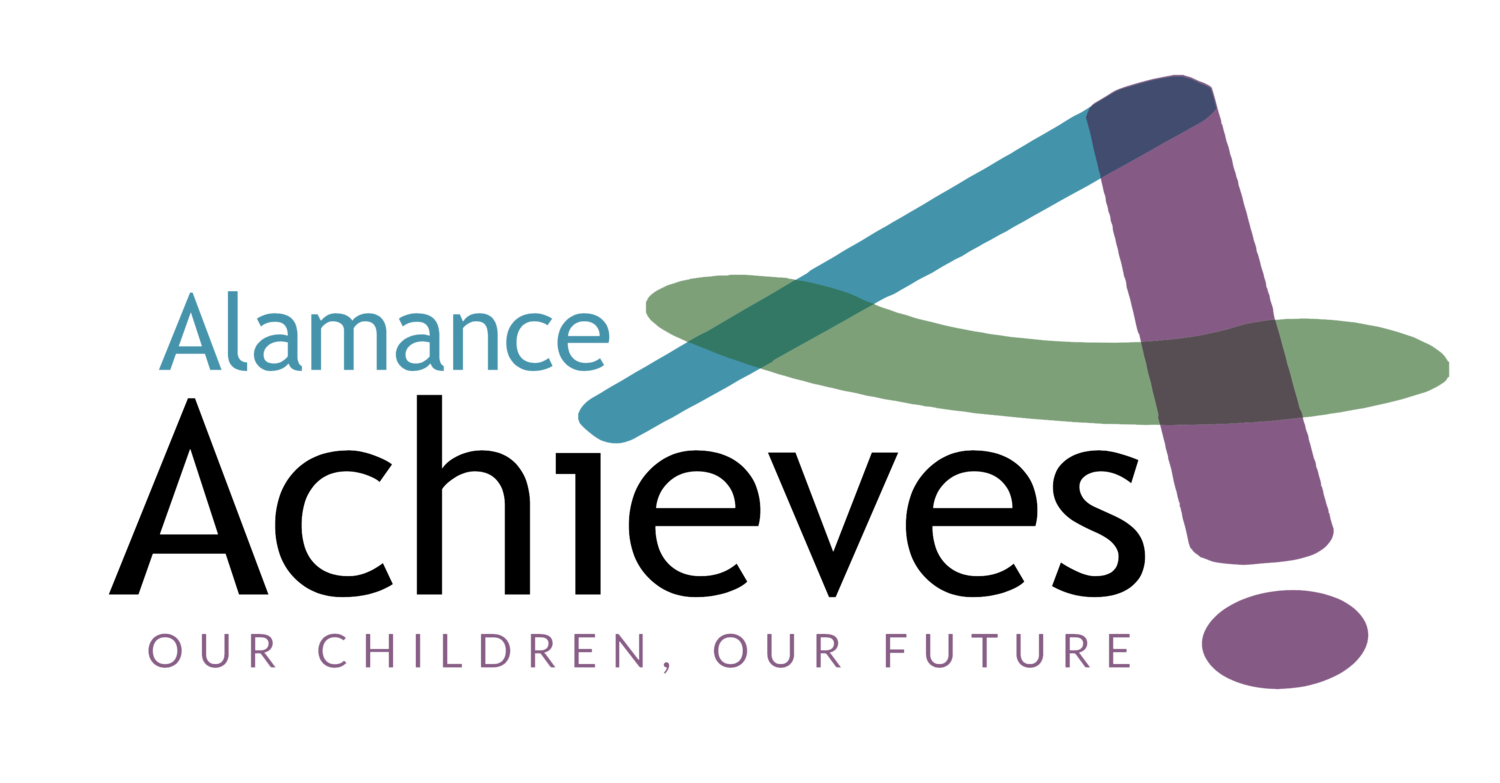When it comes to education, mentorship plays a crucial role for many, particularly people of color, something Alamance Achieves recognizes and is actively working to foster throughout Alamance County through their partnerships with educators and others in the community.
For Dr. Donna H. Oliver, mentorship is personal. Not only did she benefit from it during her education and her career, but she also felt compelled to pay it forward once she was able.
Dr. Oliver didn’t set out to become an educator. Her first dream was to become a medical doctor. As one of the first Black students at Williams High School, Dr. Oliver remembers clearly a history class where they were discussing the Civil War. As the only Black student in the class, she felt particularly uncomfortable. “It made me feel invisible and unimportant,” she recalls. “But my teacher took that conversation and turned it in such a way that I began to sit up in my seat and feel proud and feel important as a young black girl in the South. Then I was able to hear some of the white students discussing the topic from a different point of view from what they were saying when the conversation first started.” At that moment, Dr. Oliver became aware of the power teachers have — the power to save a young person by saving their mind just as a medical doctor saves the body from disease. ‘I felt I received a calling to be a teacher.”
That teacher, Nancy Garner, changed Dr. Oliver’s path. But she wasn’t her first mentor. That honor goes to her kindergarten teacher Juanita Spaulding, who also went to her church, and continued to mentor her throughout her life. “When I became North Carolina Teacher of the Year, she was by my side,” she said. Another early teacher, Julia Jordan, became a life-long mentor and supporter, as did John A. Freeman, the second principal Dr. Oliver worked under as a teacher.
“He pushed and pulled me, he recommended me for a variety of teaching honors and he assigned me many leadership roles because, unbeknownst to me, he was preparing me for future leadership roles. Because of his mentorship and leadership, I was selected by my peers as the Cummings High School Teacher of the Year, which started me on the path to becoming the Burlington City Schools Teacher of the Year and, ultimately, the North Carolina Teacher of the Year and National Teacher of the Year.”
–Dr. Donna H. Oliver
This legacy of support continued into Dr. Oliver’s time in college at the then Elon College, where Mr. Voight Morgan, a biology professor, took the time to nurture her in a school where she was again one of only a handful of Black students. “That meant so much to me as a student at a predominately white school.” Even when Dr. Oliver transitioned into working in higher education, the power of mentors continued to influence her life. “Dr. Gloria Randle Scott and Dr. Johnnetta Betsch Cole, from Bennett College, both continue to mentor me to this day, and I even have a personal friendship now with Dr. Cole.”
Dr. Oliver considers herself a teacher at heart, and she believes that a part of teaching is mentoring. She tries to practice the three C’s — acting as a consultant to former students, colleagues and friends, as well as a counselor for them and a cheerleader. Her goal is to motivate and inspire those whom she mentors, while helping them understand that they can achieve anything they set their minds to.
Dr. Oliver continues to lead the way for aspiring teachers and executive administrators, having served as the first Black woman president to lead a state university in Mississippi, and the first and only woman to date to serve as president of Mississippi Valley State University. During her term as president, she mentored two of her cabinet members and today both of them have become successful college and/or university presidents. Her mentorship has also led to many of her former high school and college students becoming classroom teachers and principals, teachers of the year in their respective schools and many have earned their doctorate degrees under her mentorship.
During her career in education, Dr. Oliver has seen strides being made toward equity for students of color, but she is quick to acknowledge that the work is nowhere near complete, nor will it be without additional legislation to close the inequality and access gap. “There are many underserved students still today in low socio-economic areas, who don’t have a computer, who don’t have access to the internet.”
In addition to leveling the playing field in terms of resources and access, Dr. Oliver stresses the importance of the nation making education a top priority for all students. “Standards and expectations have to be high, for both teachers and students. There is no room for mediocrity in the classroom — academically or socioeconomically. We need masterful, effective teachers in our classrooms who genuinely care about all students. Thank God for those teachers, as there are so many of them. We just need to pay them and respect them. We also need smaller class sizes to help students learn better in comfortable well-designed classroom,” she says.
Dr. Oliver concludes, “Teaching is a privilege and an honor, an art and a science, especially when you do it right. Remember, teachers teach today and touch tomorrow! My continued hope is that one day America will truly realize that when it comes to honoring professions, highly effective, masterful teachers should be at the top — in respect and salary. The biggest investment America can make in itself is to invest in education for all!”





